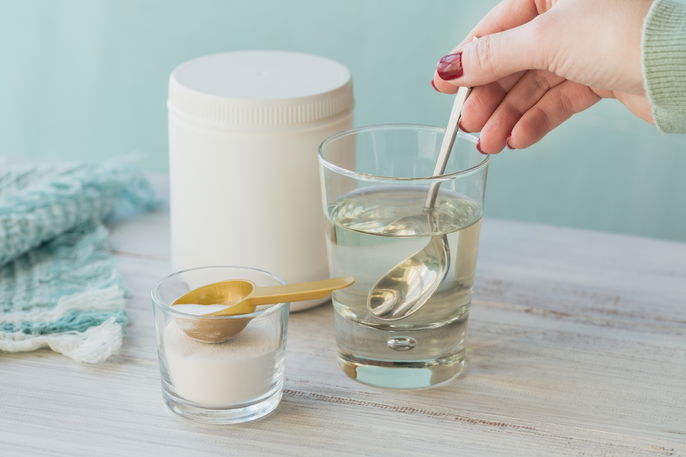Citrulline, or L-citrulline, is a nonessential amino acid offering health benefits like improved physical performance during high intensity exercise and prevention of cardiovascular disease. It can also help build muscle mass and treat erectile dysfunction.
These benefits are related to the vasodilatory, ergogenic, and antioxidant properties of citrulline.
Citrulline is produced by the body and can be found in certain foods, such as watermelon, squash, cucumbers, and melon. Citrulline can also be taken in the form of a supplement, which may be sold in the form of capsules, pills, and a powder. Citrulline supplements are available in sports stores and pharmacies.

Health benefits
Citrulline has a variety of health benefits and is indicated for:
1. Building muscle mass
Citrulline supports muscle recovery after exercise, helping to build muscle mass. This is because citrulline raises levels of arginine in the body, which is an amino acid that improves circulation, thereby increasing muscle strength and endurance.
See best supplements for muscle growth.
2. Helping to treat erectile dysfunction
By stimulating the production of nitric oxide, a vasodilator, citrulline increases blood flow to the penis, thereby improving sexual performance. In this way, citrulline can be a good option to complement other treatments for erectile dysfunction.
3. Improving physical performance
Citrulline improves respiratory capacity and physical performance due to its role in energy production in the body. Citrulline also prevents fatigue during physical activity by causing rapid elimination of waste products like lactic acid and ammonia, making it a useful supplement for use in sports or high intensity activities.
4. Preventing cardiovascular disease
The vasodilatory properties of citrulline are generated by an increased production of nitric oxide. Citrulline helps prevent cardiovascular disease because it promotes relaxation of the blood vessels and improved circulation.
5. Detoxing the body
Citrulline helps detoxify the body by being converted to arginine, an amino acid that acts on the liver to promote the elimination of excess levels of substances in the body.
Also recommended: Liver Detox: Food, Drinks, Teas & More (with Meal Plan) tuasaude.com/en/liver-detoxFood sources
Foods high in citrulline include plant-based foods like watermelon, cucumbers, squash, melon, nuts, and chickpeas.
Animal products including red meat and salmon are also good sources of citrulline.
Main types
There are two main types of citrulline, L-citrulline (or simply citrulline) and citrulline malate. L-citrulline is the amino acid that is found in food and is produced by the body.
Citrulline malate contains both L-citrulline and malate, a malic acid salt that is important for promoting energy production. This is the most common form of citrulline supplement.
Dosing instructions
Citrulline supplements come in the form of capsules, pills, and a powder. Dosing will vary based on indication, which include:
- Helping to treat erectile dysfunction: 6 g per day, divided in three doses;
- Improving circulation: 3 to 6 g per day, divided in three doses.
To improve physical performance during exercise, citrulline can be taken 30 to 60 minutes prior to a workout session. A typical dose in this scenario is 6 to 10 g of citrulline malate or 4.5 g of citrulline per day.
Side effects
In some cases, taking large doses of citrulline supplements may cause belly pain, nausea, diarrhea, and, very rarely, nervousness.
Contraindications to use
Citrulline malate supplements are contraindicated in people with hypersensitivity to any of the product ingredients.
Children and people who are pregnant or breastfeeding should only take citrulline supplements if approved by a doctor. People who take any medications regularly should also check with their doctor before starting citrulline supplements.






























